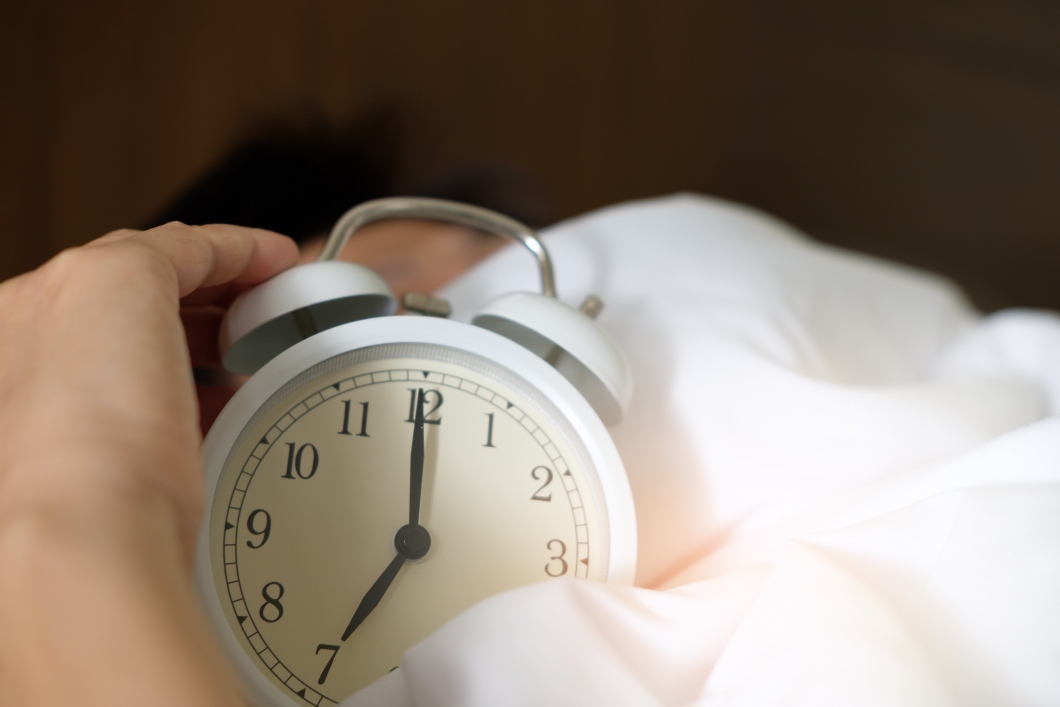Having problems with sleep is so common, which is a problem as having a good night’s sleep is just as important as exercising regularly and having a varied and healthy diet. Whilst for some people their sleep issues may need to be addressed by a professional, it is worth trying a few simple things to see if they can make a difference to your sleeping pattern! It is insane how much of a difference a good night’s sleep makes to us, so it’s about time that we take care of ourselves and improve our sleeping pattern.
Increase Your Exposure To Bright Light Each Daytime
The first thing you can do to help you sleep at night is to increase your exposure to bright light during the daytime. Our bodies are heavily influenced by our exposure to (or lack of) natural sunlight, as our circadian rhythm (our internal body clock) knows it needs to be awake when it’s bright and feels like it should be asleep when it’s dark. When you expose your body to bright light during the day, you will be more energised and you are also likely to sleep better for longer.
This is often easier said than done, especially if your job means you aren’t exposed to much sunlight. So, try to use some of your lunch break to have a walk around outside. Where possible, eat your breakfast, lunch or dinner outside when the weather is being obedient. Rather than going to the gym every time you workout, swap a weights workout for an outdoor walk, run or cycle. Outdoor yoga is a great choice and yoga is great for helping you to sleep too! Being in the sunlight more is such a simple yet very effective way to help you to sleep better.
Reduce Blue Light Exposure In The Evening
Our lives are consumed by technology a lot of the time, from work to leisure, so it is often difficult to detach ourselves. However, when we are exposed to blue light too close to when we go to sleep, our bodies are tricked into thinking that it is still bedtime, making us feel more awake and less relaxed.
Blue light comes from almost any device with a screen, including our phone, laptop, tablet, TV and so on. One of the best things you can do to help yourself sleep is to turn off any devices with blue light two hours before going to bed. This will help you to fully unwind and feel ready for sleep. Replace your hour watching TV before bed with a bath and reading. You could take an evening stroll followed by packing your lunch for work the next day. As soon as you cut out blue light before bed, you will realise what a big difference it really can make.
Make Sure Your Bedroom Is Pitch Black
Our next tip is to make sure that your bedroom is pitch black. Light is the most important thing that impacts our circadian rhythm, so if the body is exposed to any light, whether that be natural or artificial from street lights, car headlights etc, it can disrupt our sleep significantly.
So, a great solution is to have blackout custom blinds fitted. Having normal blackout blinds is all good and well, but if they don’t fit your windows properly, light will enter! So, having the combination of a blackout material and a perfect fit is the best way to make sure that light isn’t entering your home and therefore, you should sleep better.
Don’t Drink Caffeine 6 Hours Before Bed
Last but not least, you should avoid drinking caffeine at least 6 hours before bed. Caffeine is a stimulant that encourages activity in your brain and nervous system, meaning that your body and mind will feel increasingly energised after consuming caffeine. Even in small amounts, caffeine can have a huge impact on our body. So, avoiding it 6 hours before you go to sleep will give it time to get out of your system before you get settled down for bed.
Caffeine can be found in so many different things, namely coffee, tea, fizzy drinks, energy drinks and even chocolate! We know how great an afternoon tea or coffee can be, but try switching to decaf in the afternoon to help you sleep well during the night.

